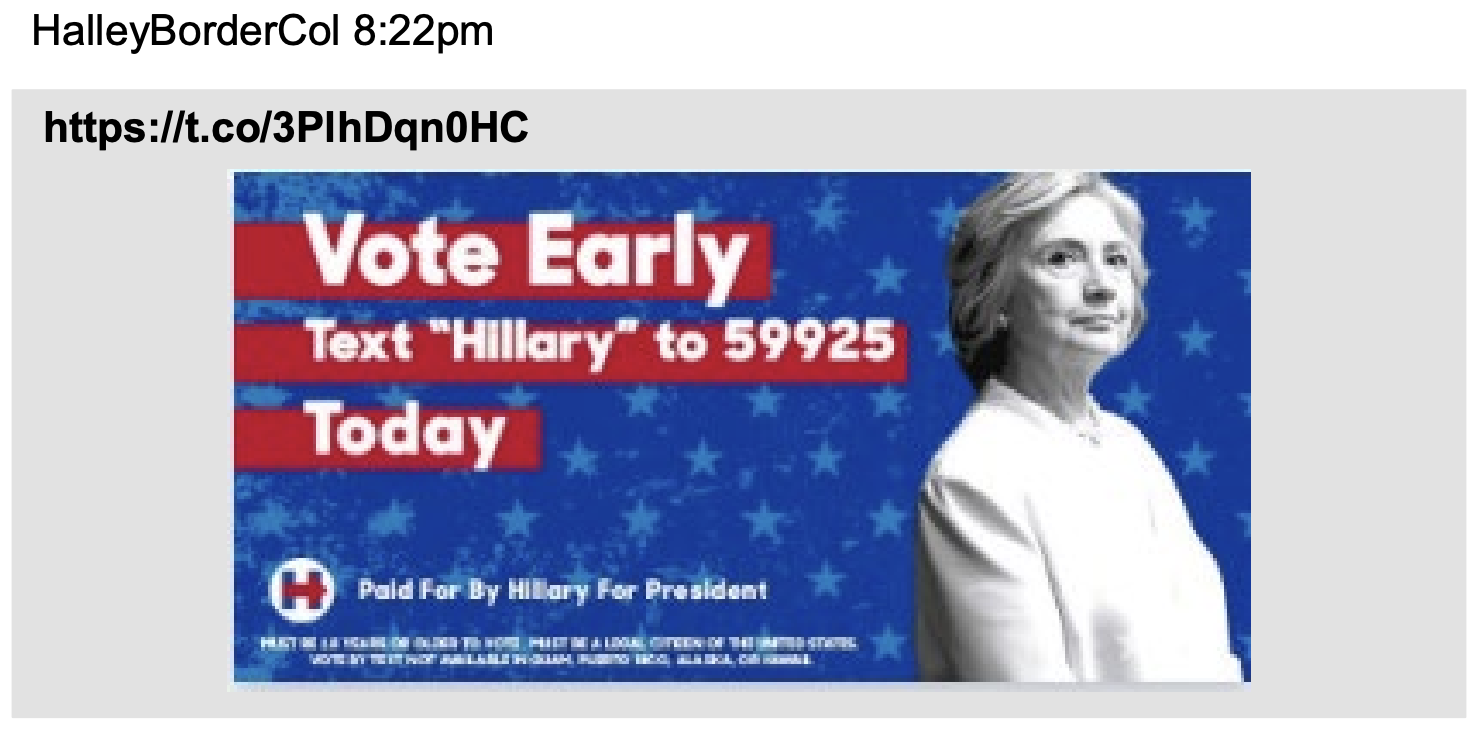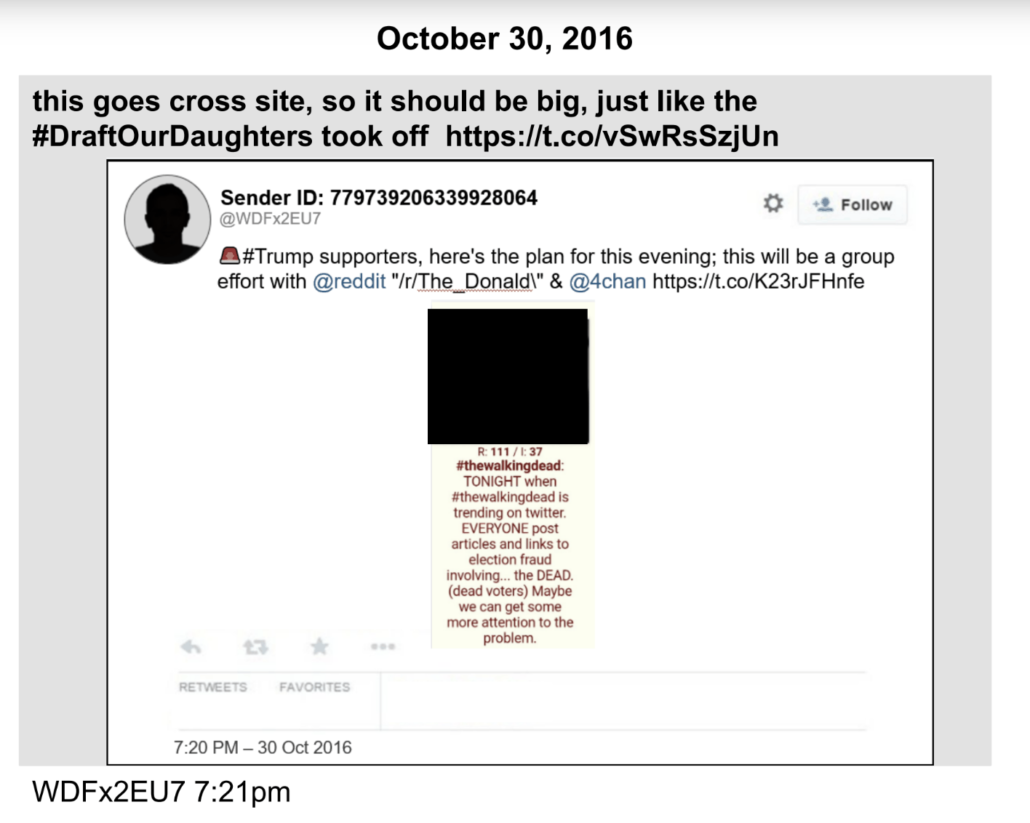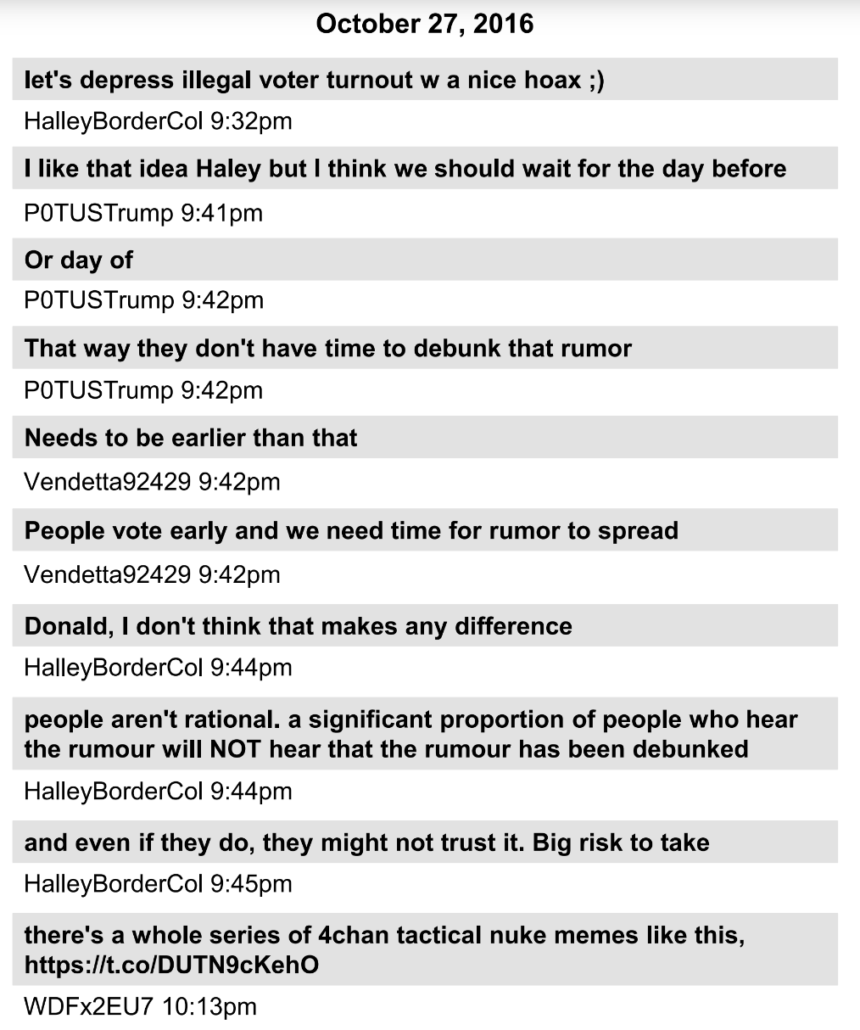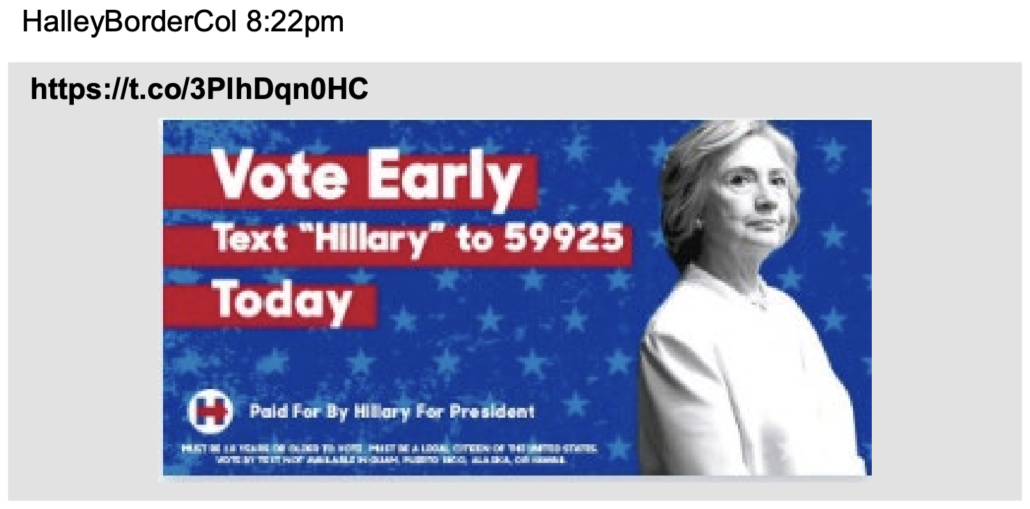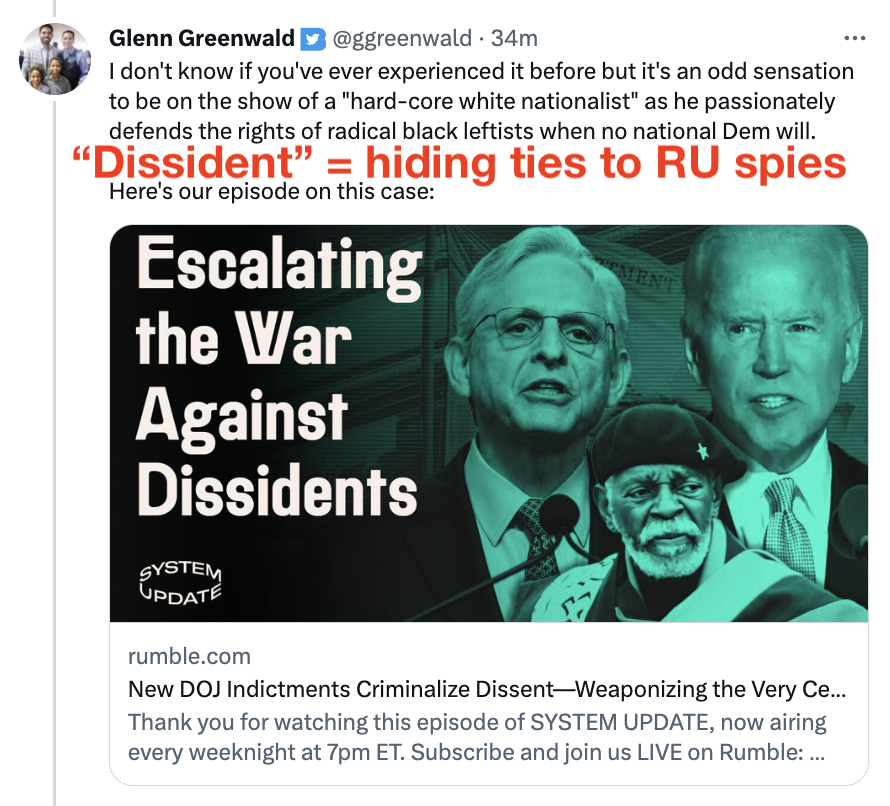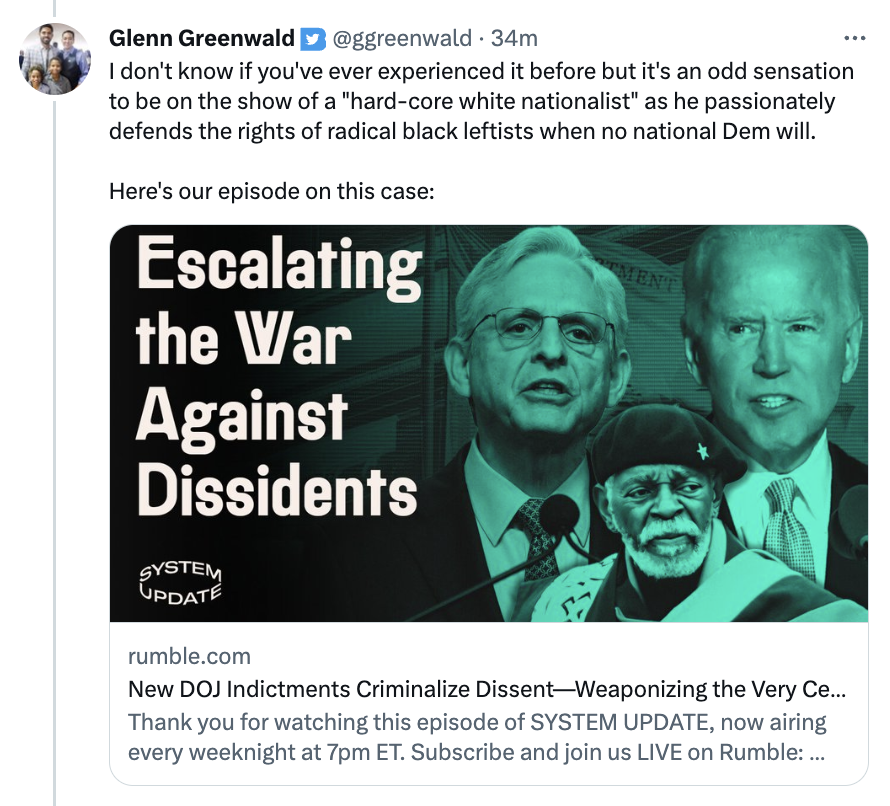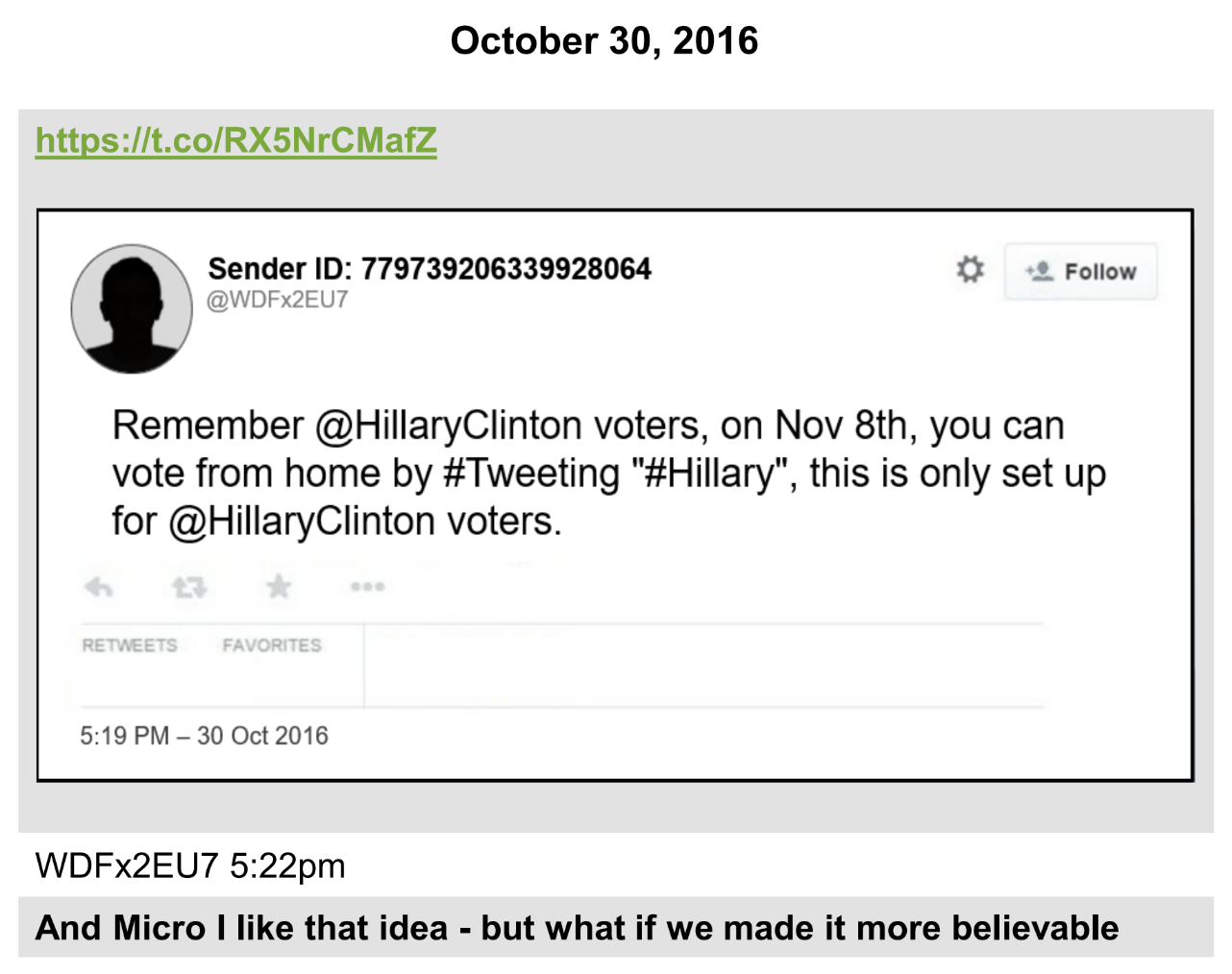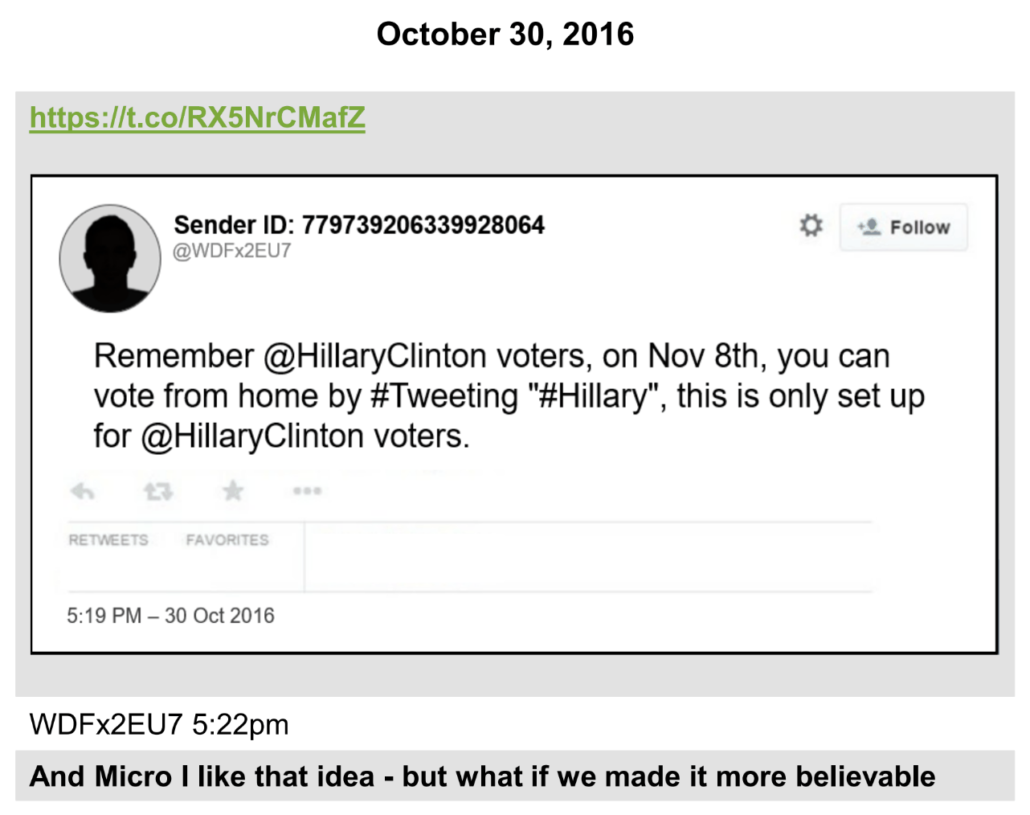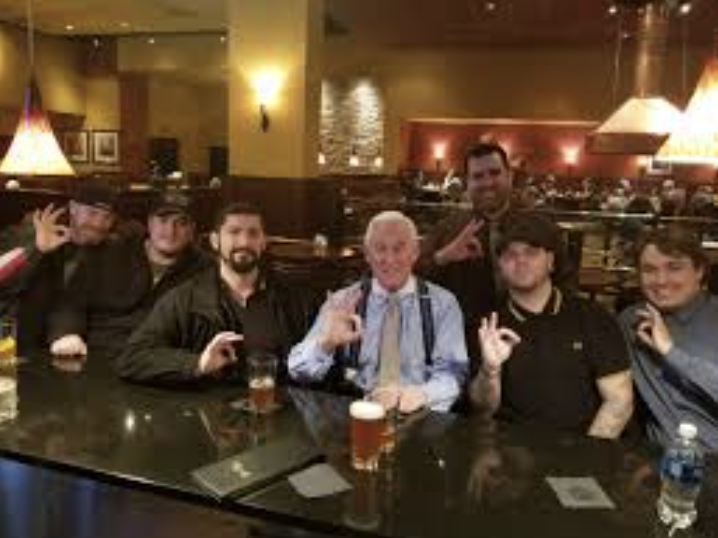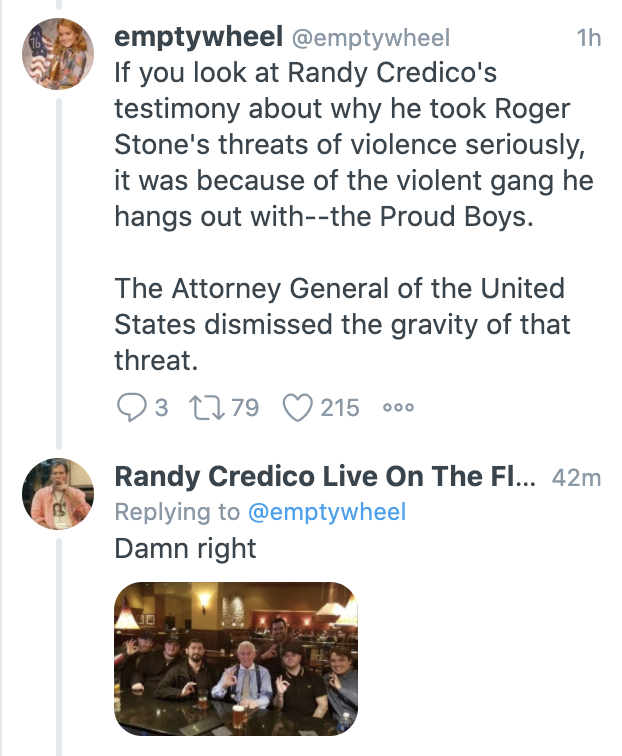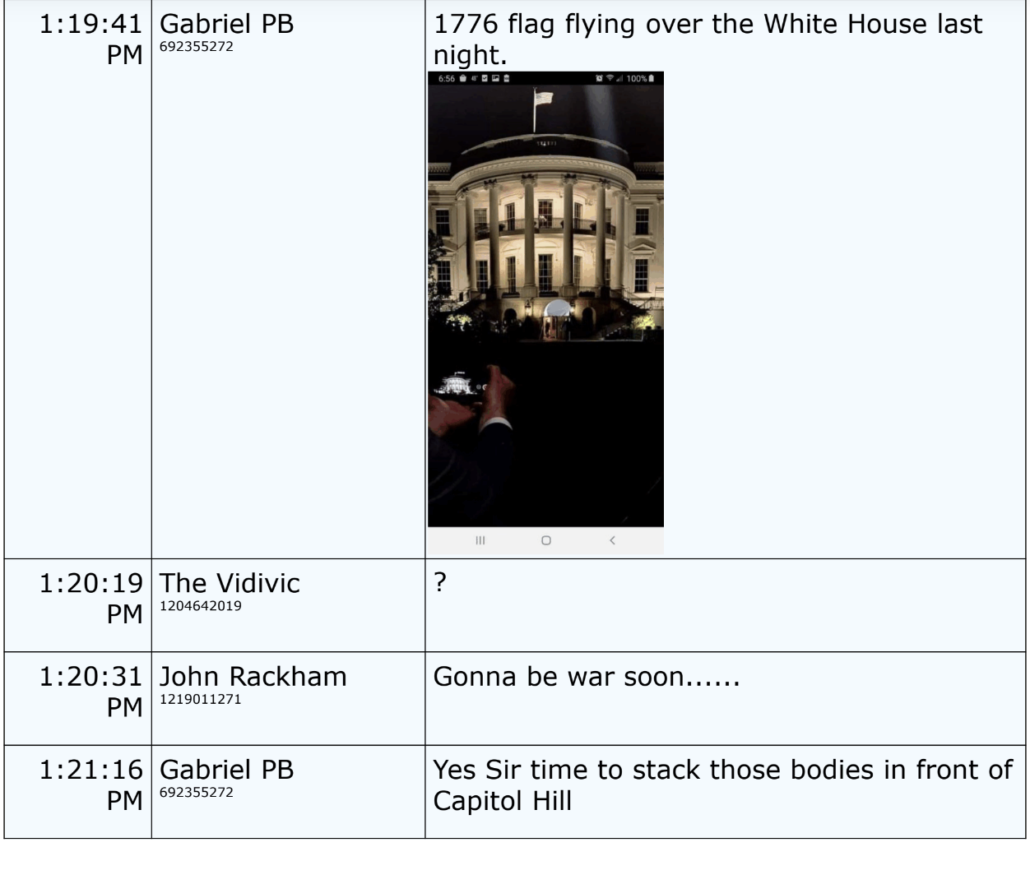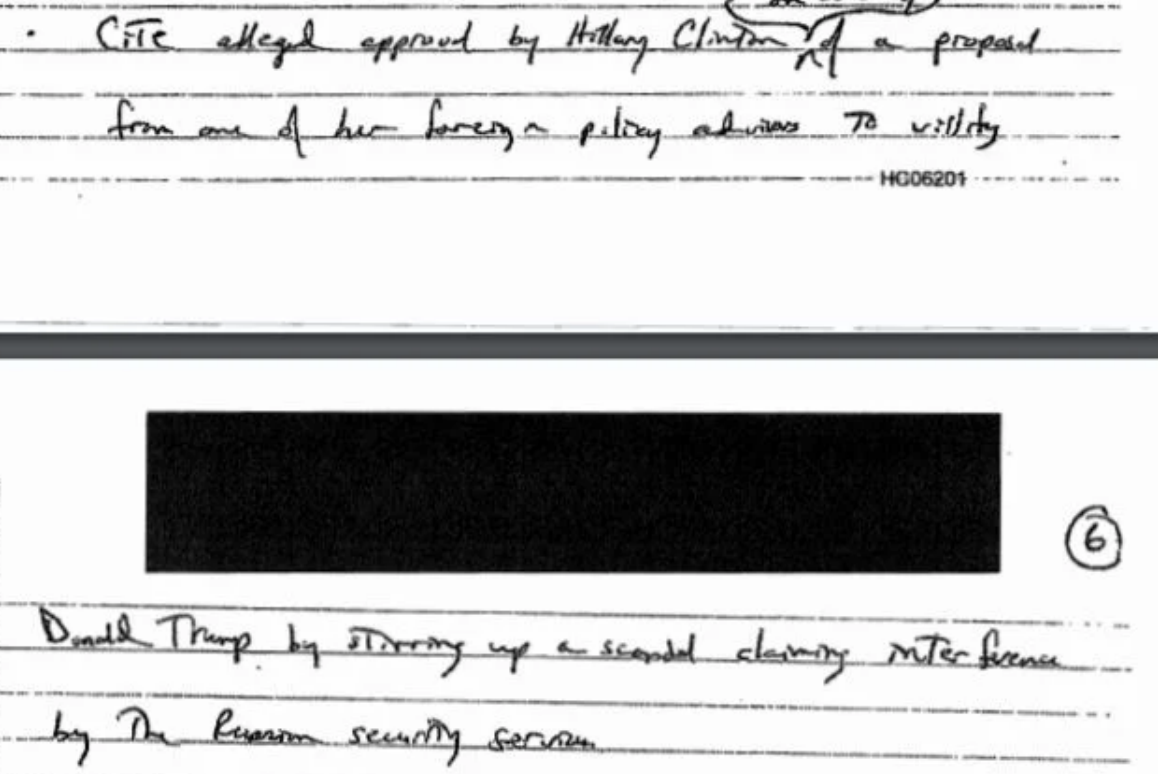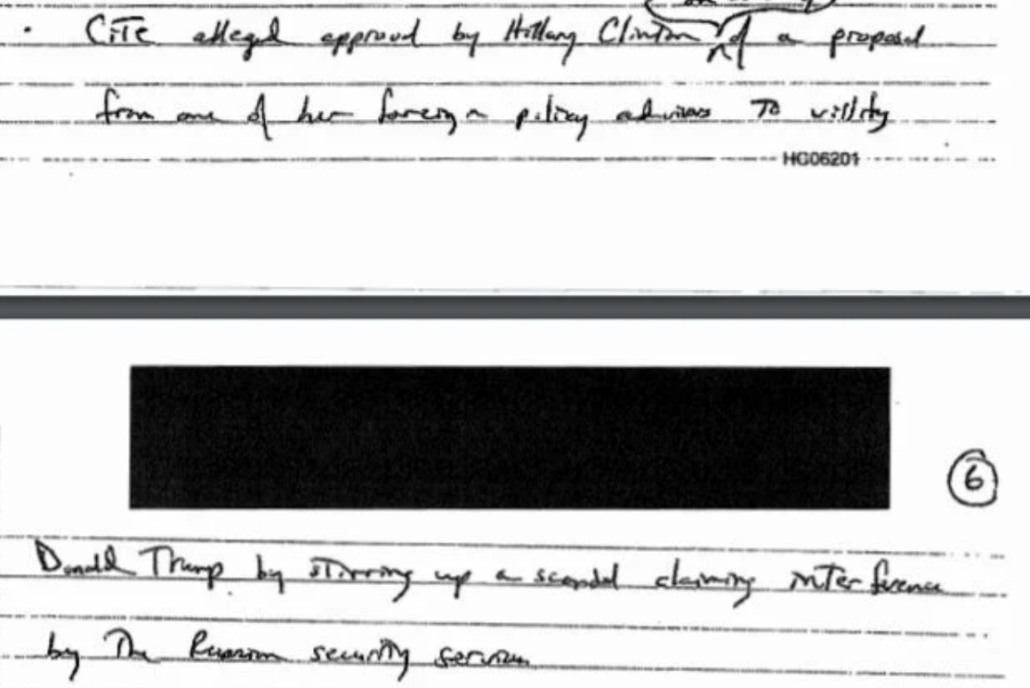The Media’s Past Indifference to Trump’s Past Abuse of Pardons Invites Him To Do It Again
It took former Reagan and Poppy appointee Wayne Beyer to raise the subject of pardons as the very first question at CNN’s Town Hall on Wednesday.
[Wayne] BEYER: My question to you is: will you pardon the January 6th rioters who were convicted of federal offenses?
TRUMP: I am inclined to pardon many of them. I can’t say for every single one because a couple of them, probably, they got out of control.
But, you know, when you look at Antifa, what they’ve done to Portland, and if you look at Antifa, look at what they’ve done to Minneapolis and so many other – so many other places, look at what they did to Seattle. And BLM – BLM, many people were killed.
These people – I’m not trying to justify anything, but you have two standards of justice in this country, and what they’ve done – and I love that question because what they’ve done to see many people is nothing – nothing. And then what they’ve done to these people, they’ve persecuted these people.
And yeah, my answer is I am most likely – if I get in, I will most likely – I would say it will be a large portion of them. You know, they did a very –
And it’ll be very early on. And they’re living in hell right now.
Given his legal focus on police misconduct and sometime membership in a GOP lawyers association, Beyer may have been teeing Trump up to promise to pardon the men and women who attacked the Capitol on January 6 and might have assassinated Mike Pence. Given his background, this feels like a scripted question, designed to provide Trump an opportunity to promise those facing prosecution (including some lawyers!) to remain loyal to Trump.
In response, Kaitlin Collins attempted to point out Trump’s hypocrisy by raising one of the several cops and former cops who rioted on January 6, to say nothing of the former and active duty service men and women who participated in the attack (she was probably alluding to Thomas Webster, the most celebrated of the former cops charged with assaults, but he is not the only one). That only teed up another opportunity for Trump to undermine the rule of law in the US.
COLLINS: So when it comes to pardons –
TRUMP: They’re living in hell, and they’re policemen, and they’re firemen, and they’re soldiers, and they’re carpenters and electricians and they’re great people. Many of them are just great people.
COLLINS: Mr. President, one of the people who was convicted was a former policeman but he was convicted of attacking a police officer, I should note.
But when you said you are considering pardoning a large portion of those charged with crimes on January 6th, does that include the four Proud Boys members who were charged and convicted of seditious conspiracy?
TRUMP: I don’t know. I’ll have to look at their case, but I will say in Washington, D.C., you cannot get a fair trial, you cannot. Just like in New York City, you can’t get a fair trial either.
Collins made no mention — none — about Trump’s past pardons. She let one of the most unprecedented abuses committed during Trump’s first term, his pardons for those who lied to protect him, go unmentioned even when discussing a topic directly on point.
She’s not alone in her silence. Six months after Trump announced he was running, I’m aware of no deep dive on Trump’s abuse of the pardon power in his first term, not even the pardons that were — as a mass pardon of January 6 convicts would be — pardons of criminals whose crimes served his own power.
Take Paul Manafort. Whatever you imagine the Mueller Report says, whether or not you’ve read the far more damning Senate Intelligence Committee Report, it is a fact that Trump pardoned his way out of legal trouble with Manafort.
After entering into a plea deal in September 2018 that averted a damaging trial during the 2018 pre-election period, Manafort immediately changed his testimony on several key subjects. Judge Amy Berman Jackson ultimately ruled that his changed testimony amounted to lies that breached his plea agreement. She ruled that Manafort lied about three topics, one of which was what happened during an August 2, 2016 meeting with Konstantin Kilimnik at which:
- Manafort explained how the campaign planned to win the swing states where Trump would eventually win the election
- Kilimnik discussed how Manafort could get millions in payments from his Ukrainian paymasters and $19 million in disputed funds forgiven with Oleg Deripaska
- Kilimnik recruited Manafort’s involvement in a plan to carve up Ukraine very similar to the plan Russia pursued until they invaded last February
Had Manafort not entered the plea deal he abrogated within hours, weeks of pre-election coverage would have focused on Manafort’s FARA trial, the proof that Manafort had worked for pro-Russian Ukrainians and then lied to cover it up. Such a trial might have led to even greater Republicans losses in the November 2018 elections.
On the other hand, had Manafort cooperated in good faith, Mueller would have had three witnesses to the meeting, days after the conventions, where Manafort took steps — either wittingly or unwittingly — that provided someone who played a key role in the Russian interference operation with inside information about the Trump campaign.
Instead, Manafort forestalled the trial and undermined any value that his damning testimony (including that Roger Stone had pre-knowledge that WikiLeaks would release John Podesta emails) would have.
And after Manafort lied to cover up what really happened at that meeting and thereby faced a stiffer sentence, Trump pardoned his former campaign manager. In the process, Trump — who has bitched about the cost of the Mueller investigation — reversed the forfeitures that would have contributed to the expense of investigating Manafort’s crimes.
Intelligence judgments since make the meeting even more damning. In June 2020, the FBI offered a $250,000 reward for information leading to Kilimnik’s arrest. The Senate Intelligence Committee Report included two redacted sections (one, two) describing evidence that Kilimnik may have been more closely tied the hack-and-leak activities.
An April 2021 sanctions report stated as fact that Kilimnik had shared campaign information with Russian intelligence.
Konstantin Kilimnik (Kilimnik) is a Russian and Ukrainian political consultant and known Russian Intelligence Services agent implementing influence operations on their behalf. During the 2016 U.S. presidential election campaign, Kilimnik provided the Russian Intelligence Services with sensitive information on polling and campaign strategy. Additionally, Kilimnik sought to promote the narrative that Ukraine, not Russia, had interfered in the 2016 U.S. presidential election. In 2018, Kilimnik was indicted on charges of obstruction of justice and conspiracy to obstruct justice regarding unregistered lobbying work. Kilimnik has also sought to assist designated former President of Ukraine Viktor Yanukovych. At Yanukovych’s direction, Kilimnik sought to institute a plan that would return Yanukovych to power in Ukraine.
Kilimnik was designated pursuant to E.O. 13848 for having engaged in foreign interference in the U.S. 2020 presidential election. [my emphasis]
The declassified intelligence report on the 2020 election (which was declassified in March 2021 but completed in classified form on January 7, 2021, before Trump left office) described that Kilimnik continued to interfere in US elections in 2020.
A network of Ukraine-linked individuals— including Russian influence agent Konstantin Kilimnik—who were also connected to the Russian Federal Security Service (FSB) took steps throughout the election cycle to damage US ties to Ukraine, denigrate President Biden and his candidacy, and benefit former President Trump’s prospects for reelection. We assess this network also sought to discredit the Obama administration by emphasizing accusations of corruption by US officials, and to falsely blame Ukraine for interfering in the 2016 US presidential election.
Derkach, Kilimnik, and their associates sought to use prominent US persons and media conduits to launder their narratives to US officials and audiences. These Russian proxies met with and provided materials to Trump administration-linked US persons to advocate for formal investigations; hired a US firm to petition US officials; and attempted to make contact with several senior US officials. They also made contact with established US media figures and helped produce a documentary that aired on a US television network in late January 2020.
In other words, the tie to Kilimnik ended up being far more damaging than imagined at the time of the Mueller Report, but by the time voters learned it, Trump had already bought Manafort’s silence with a pardon, one that because it reversed the forfeiture, ended up being worth millions to Trump’s former Campaign Manager.
Though the evidence is sketchier, Trump may have pardoned his way out of even worse Russian trouble with Roger Stone. A jury found that Trump’s rat-fucker lied to cover up the true means by which he learned that WikiLeaks would release files from John Podesta (Manafort and Gates both testified that he did get advance knowledge). As Stone was about to report to prison, Stone did a series of appearances where he specified the number of calls Stone had with Trump during 2016 that (Stone claimed, unreliably) prosecutors had asked him about, a list of calls that may have come from a notebook of such contacts prosecutors hoped to find in the search of Stone’s properties. And amid Stone’s claims to have refused to tell prosecutors about the substance of dozens of contacts he had with Trump during 2016, Trump first commuted Stone’s sentence and then — the same day as Manafort — pardoned him.
Importantly, within days of getting that full pardon, Stone met with Trump to thank him for that pardon. At what was likely the same meeting, they talked about January 6, including Trump speaking; the meeting immediately preceded the White House’s shift on making that speech happen. Prosecutors have tied a January 3 appearance Stone did with the Proud Boys with efforts some of those Proud Boys made days later to prevent the vote certification.
Which leads to the most remarkable unremarked pardon of one of Trump’s co-conspirators, that of Steve Bannon.
Bannon did not get pardoned, directly, for lying to cover up what went on in 2016 (indeed, Bannon’s testimony helped to convict Stone).
Rather, as one of his last acts as President, Trump pardoned Bannon for defrauding Trump voters, to the tune of millions, using Trump’s image to do that.
Several of Bannon’s victims testified about believing they were investing in Trump’s wall at his co-conspirator Timothy Shea’s trial. Public school teacher Nicole Keller described investing because border security was so important to her late border patrol agent spouse.
Q. Why did you decide to donate to We Build the Wall? A. My late husband was a border patrol agent. We lived at the southern border in the Rio Grand Valley from 1998 through fall of 2007. Border security is something that is very — was very important to him. He dedicated his career to it. At that point in time, I was a teacher at the southern border. I taught sixth grade and high school science. And we believed that the southern border should be secure, just like the door to our house. It’s not that we’re trying to keep people out; it’s just making sure when someone comes in to our home or residence, we know who they are and what business that they might have at our house.
William Ward, a veteran and retired Washington State Medicare fraud administrator, described contributing because he didn’t believe Congress was doing enough to build Trump’s wall.
Q. Why did you decide to make that donation to We Build the Wall?
A. It was symbolic on my part more than anything else, that I thought if there were a whole lot of people that donated that way, that it might draw some attention to what I think is a difficulty along our Southern Border.
Q. Why do you think there’s a difficulty along the Southern Border? Explain what you mean by that, please.
A. Well, it’s a personal view, but I’m not sure that Congress has done what they should in passing laws that have sort of gotten out of date with the truth on the ground now, for a couple of decades, and that I think that’s where it should start. It should be a congressional thing.
Both described feeling cheated when they discovered their donations were being misused. Keller:
Q. Did there come a time when you became concerned that We Build the Wall wasn’t using donors’ money properly?
A. There did, yes.
Q. Why did you become concerned about that?
A. Again, it was something that was being talked about on news websites.
Q. And when you saw news that caused you concern, what, if anything, did you do about it?
A. I went to the GoFundMe website and tried to get my money back. Mr. Kolfage had implied that if I did not — if the monies were not used as they could be, that we would get our money back.
Q. Were you able to get your money back?
A. I was not, no.
Q. Why did you want your money back?
A. I was insulted that somebody had taken what should be a position of honor and valor, being injured for their country, and, instead, used it to defraud me.
And Ward:
Q. Did there come a time when you became concerned that We Build the Wall wasn’t using donated money in the right way?
A. Yes, there was.
Q. Why did you become concerned about that?
A. The — again, going through a news feed at breakfast every morning, I saw something that there was an investigation of misuse of the funds.
Q. When you saw that, what, if anything, did you do?
A. I got a hold of the GoFundMe page to see if I could recover my donation.
Q. Were you able to get your donation back?
A. No, I was not.
Q. Why did you want your money back?
A. I just felt I’d been cheated.
A restitution filing ordered the defendants to pay over $25 million to their victims.
Bannon cheated people who believed in Trump and his goddamn wall. And Trump pardoned him for it. And Kaitlan Collins didn’t think it worth mentioning to an audience of potential Trump supporters.
Trump obviously didn’t find the charges themselves faulty; he didn’t pardon Bannon’s co-conspirators. They were just sentenced — to three to four-plus years in prison — for the fraud they perpetrated against Trump supporters. And while Dustin Stockton’s testimony to the January 6 Committee has proven unreliable, he and Jennifer Lawrence claimed they were floated pardons in conjunction with their involvement with planning January 6.
The full story of why Trump pardoned Bannon in one of his last acts as President has not been — may never be — told. But there’s no way to regard a pardon for defrauding Trump supporters outside the context of Bannon’s involvement in Trump’s efforts to overturn the election. And, particularly given the absence of any defect in the charges themselves — given that Trump didn’t pardon all the Build the Wall fraudsters — it’s impossible to understand Bannon’s pardon as anything but payback.
And yet, when Kaitlin Collins talked about how horrible it would be if Trump started pardoning everyone else who helped Trump attack Congress, she treated as if it would be an unprecedented abuse. She did so even though she made that tie herself in breaking the story of the Bannon pardon.
Bannon’s pardon would follow a frantic scramble during the President’s final hours in office as attorneys and top aides debated his inclusion on Trump’s outgoing clemency list. Despite their falling out in recent years, Trump was eager to pardon his former aide after recently reconnecting with him as he helped fan Trump’s conspiracy theories about the election.
[snip]
Things shifted in recent months as Bannon attempted to breach Trump’s inner circle once again by offering advice before the election and pushing his false theories after Trump had lost.
One concern that had stalled debate over the pardon was Bannon’s possible connection to the riot of Trump supporters at the US Capitol earlier this month, a source familiar with the discussions told CNN.
“All hell is going to break loose tomorrow,” Bannon promised listeners of his podcast – “War Room” – on January 5, the day before the deadly siege on the Capitol.
[snip]
While some advisers believed it was decided last weekend that Bannon was not getting a pardon, Trump continued to raise it into Tuesday night. Throughout the day, Trump had continued to contemplate pardons that aides believed were settled, including for his former strategist – something he continued to go back and forth on into Tuesday night, sources told CNN.
Ultimately, Trump sided with Bannon.
It would be the exact same thing Trump did in the wake of the November 2020 election, at a time he thought he would face no consequences for such an abuse of the pardon power.
Trump waited to pardon those who had protected him until after voters weighed in. He waited, because he knew that making these pardons before an election would harm his chances of getting elected.
And yet no one — not even Collins, when discussing pardons in the direct context of the next election — could be bothered to mention how abusive were Trump’s past pardons.
Of course Trump will pardon January 6 criminals if he wins in 2024, Kaitlan! Why wouldn’t he?!?! You let him blather on for an hour, even discussed future pardons with him, with not a single mention of his past abuses.




